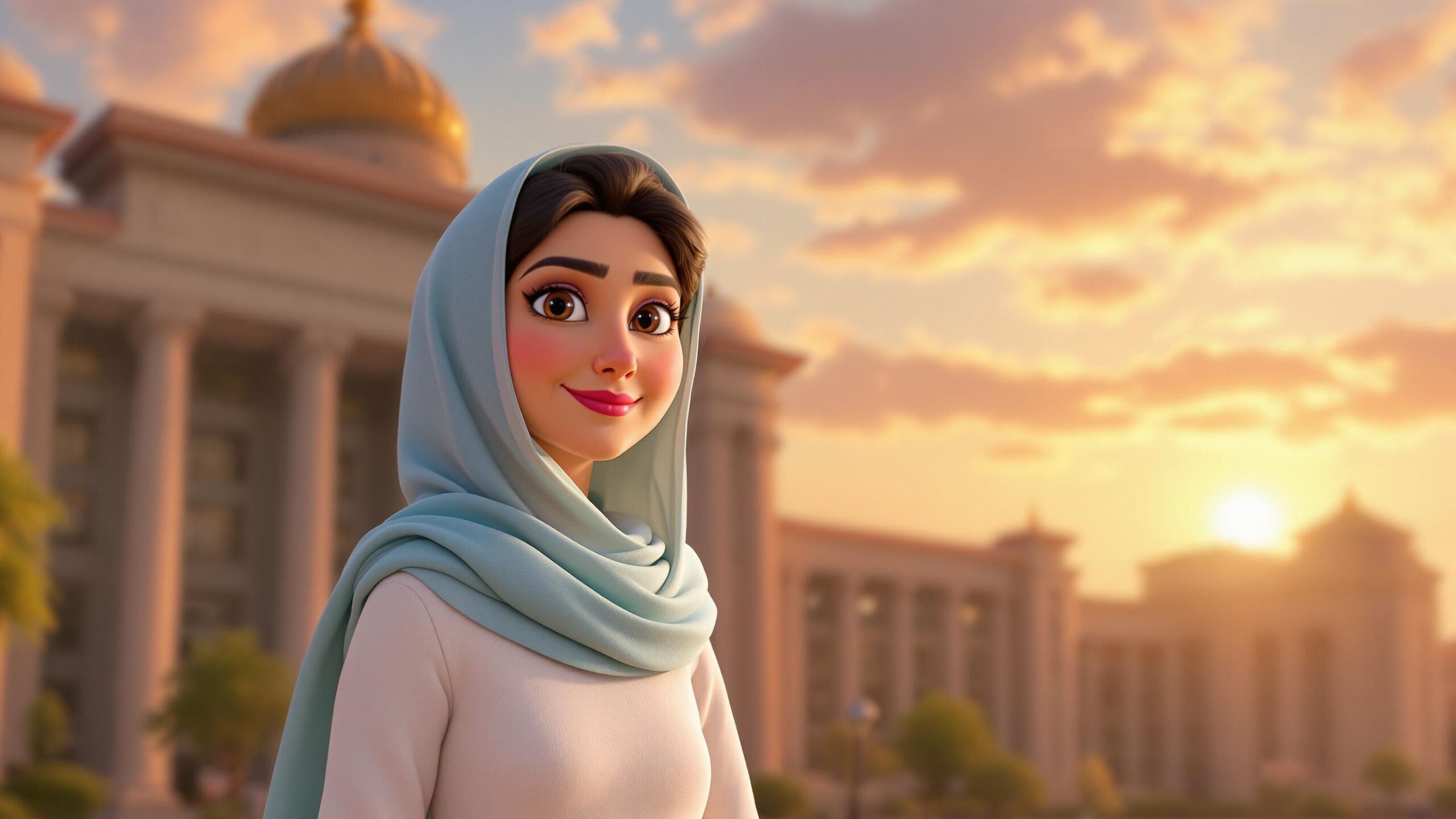When Malala Yousafzai first spoke out publicly about a girl’s right to education, she was just 11 years old. While most preteens were navigating schoolwork and hobbies, Malala was already confronting one of the world’s most dangerous extremist groups. Her words were bold, her voice steady, and her mission clear: girls deserve to learn, no matter where they are born. That conviction would soon propel her to global prominence—but not before nearly costing her her life. In 2012, the Taliban tried to silence her with a bullet. Instead, they amplified her voice. Malala survived the attack and emerged even more determined. She became a symbol of resistance, courage, and hope for millions. Her advocacy transcended borders, inspiring students, educators, and leaders worldwide. From a humble village in Pakistan’s Swat Valley to Nobel Prize ceremonies and the United Nations stage, Malala’s journey is proof that education is not just a right—it’s a revolution.
Childhood in Swat: Learning Amidst Shadows
Malala was born on July 12, 1997, in Mingora, a city nestled in Pakistan’s Swat Valley—an area known for its natural beauty and, increasingly, political instability. Her father, Ziauddin Yousafzai, was an educator and a fierce advocate for learning. He ran a school and believed deeply in equal education for girls and boys. From the start, Malala’s home was filled with books, debate, and an unwavering belief in knowledge as power. Even as a child, Malala was intellectually curious and articulate. She loved math and science, adored poetry, and dreamed of becoming a doctor. But her love of learning was soon overshadowed by a darker reality. By 2007, the Taliban had begun asserting control in Swat. Schools were bombed, music was banned, and girls were increasingly forced to stay home. By 2009, over 150 schools for girls had been shut down. Rather than retreat, Malala stepped forward. Encouraged by her father, she began blogging for the BBC Urdu under a pseudonym. Her posts offered an unfiltered, firsthand account of life under Taliban rule—and the heartbreak of watching her school shut its doors. She wrote about missing classmates, destroyed classrooms, and her determination to keep learning despite the threats.
A Targeted Voice: The Attack That Shocked the World
By 2012, Malala’s identity as the anonymous blogger had become public. She had been featured in documentaries, given interviews, and received awards for her bravery. Her advocacy, while celebrated internationally, made her a marked target at home. On October 9, 2012, while riding home from school, Malala was shot in the head by a Taliban gunman. The attack shocked the world. Many feared she wouldn’t survive. But Malala’s story didn’t end in tragedy—it turned into triumph. She was airlifted to Birmingham, England, where a team of doctors performed life-saving surgeries. As she recovered, messages of support poured in from across the globe. The attack intended to silence her had only strengthened her platform. Within months, she was walking again. Within a year, she was addressing the United Nations, calling on world leaders to guarantee education for every child. “One child, one teacher, one book, and one pen can change the world,” she said in her now-iconic speech. That single sentence became a rallying cry for a global movement.
The Malala Fund: Turning Passion Into Policy
In 2013, Malala co-founded the Malala Fund with her father. Its mission: to advocate for 12 years of free, quality education for every girl in the world. Unlike many organizations, the Malala Fund is youth-led, community-driven, and unflinchingly political. It not only funds grassroots activists but also pressures governments to change policies and invest in girls’ education. The Fund operates in countries where girls face the most extreme barriers to learning—including Afghanistan, Nigeria, India, Brazil, and Lebanon. It supports education activists, builds school infrastructure, trains teachers, and even lobbies for legislative reform. Malala’s unique approach isn’t just about charity—it’s about justice. She insists on systemic change, making sure that progress isn’t temporary or surface-level. Her role within the organization is hands-on. She meets with students, travels to remote communities, and continuously uses her voice to spotlight underrepresented struggles. Through the Malala Fund, she’s not only keeping her promise to fight for education—she’s building a global network of girls who will lead the future.
Becoming the Youngest Nobel Laureate
In 2014, at just 17 years old, Malala Yousafzai became the youngest recipient of the Nobel Peace Prize. She shared the award with Kailash Satyarthi, an Indian child rights activist, symbolizing cross-border unity in the fight for children’s rights. The Nobel Committee praised her “heroic struggle” and “exemplary courage.” For Malala, the award wasn’t a moment of arrival—it was a megaphone. “This award is for the forgotten children who want education,” she declared. Her acceptance speech was filled with warmth, wit, and unwavering purpose. She reminded the world that she was still a teenager with homework—but also a girl who had survived hate and transformed it into hope. Receiving the Nobel only increased her global reach. She began speaking at summits, meeting heads of state, and urging the world to treat education as a human right, not a luxury. Yet she never let fame distract from her mission. With every accolade, she returned to the same message: girls need books, not bullets.
From Oxford to the World Stage
In 2017, Malala began studying at Oxford University, majoring in Philosophy, Politics, and Economics—the same degree pursued by many British prime ministers. She lived in a dorm, attended lectures, and enjoyed university life with the same joy and curiosity that once drove her to sneak books under her pillow. Even as a student, she continued her activism. She traveled for Malala Fund missions, balanced schoolwork with speeches, and proved that young leaders could wear many hats. She graduated in 2020—during the global COVID-19 pandemic—and used the moment to amplify the need for online learning access in underserved areas. Her Oxford experience didn’t change her—it amplified her. She emerged with a deeper understanding of global systems, policy, and power structures. She also continued breaking boundaries, from appearing on magazine covers to collaborating with activists, celebrities, and world leaders—all without losing her authentic, grounded perspective.
A Voice That Refuses to Be Diminished
What sets Malala apart isn’t just what she endured—it’s how she turned pain into purpose. She doesn’t just talk about education; she lives it. She doesn’t just criticize injustice; she organizes against it. She has spoken out about gender inequality, climate change, child marriage, and refugees. Her activism isn’t confined to one issue—it’s part of a larger vision for equity and dignity. She also refuses to be boxed in. Malala has spoken candidly about her faith, feminism, and identity. She’s been targeted by critics from every angle—some calling her too outspoken, others accusing her of not doing enough. Yet through it all, she remains resolute. She’s not trying to be perfect—she’s trying to be impactful. Today, Malala is a global citizen in every sense. She’s as comfortable at the UN as she is at a school in rural Kenya. She reminds the world that young people, especially girls, aren’t just the future—they’re the present. Her story inspires not just sympathy, but action.
The Journey Ahead
Now in her mid-20s, Malala Yousafzai’s journey is still unfolding. She has written best-selling books, launched documentary projects, and co-produced a drama series to spotlight girls’ stories around the world. Her goals have evolved—but the core mission remains unchanged: every girl deserves to learn, dream, and lead. She envisions a world where no child is denied education because of gender, poverty, or conflict. A world where leaders listen to youth voices, where policies reflect real needs, and where girls aren’t just in classrooms—they’re running them, designing them, and owning their futures. Malala’s voice continues to echo across borders, reminding the world that silence is never an option when injustice reigns. She has become not just a symbol of courage, but a blueprint for change.
A Legacy of Light
Malala Yousafzai is more than a survivor. She is a builder—of schools, of dreams, of futures. Her life is a testament to the power of education, the necessity of bravery, and the extraordinary strength of a young girl who dared to speak when others stayed silent. She didn’t wait for the world to change. She demanded it. As long as there are girls being denied education, Malala’s fight continues. She carries their stories with her—and lights the way forward, one classroom at a time.




